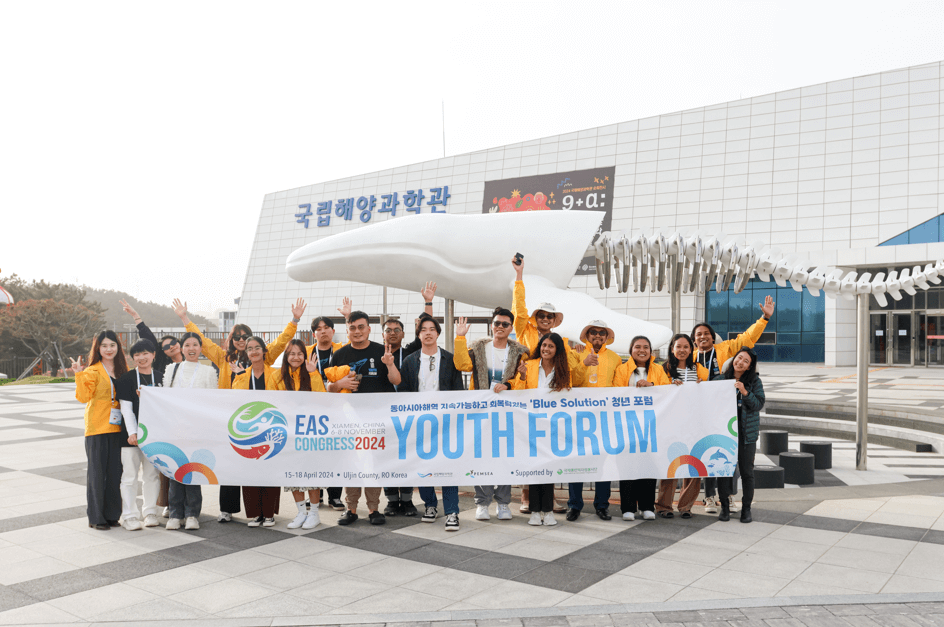Climate Change Adaptation Strategies for Coasts and Oceans
Monday, 5 January 2009

Manila, Philippines — An Experts' Forum held at the Philippines' Senate brought together the academe, policymakers, government officials, nongovernmental entities and other stakeholders to examine issues, priorities and strategies relating to climate change adaptation. Presided by Senator Pia Cayetano, former Chair of the Senate Committee on Environment and Natural Resources, the forum objectives were to: (1) identify the consequences of climate change on coasts and oceans and relevant measures for adaptation; (2) facilitate the sharing of information on adaptation strategies addressed by various concerned institutions; and (3) build consensus on the urgent need for adaptation actions among stakeholders including policy and law makers.Session 1 of the forum focused on the "Impact of Climate Change on Coasts and Oceans." As climate change is a cross-cutting issue which severely affects wider sustainable development issues including poverty, equity and governance, communities living along the coast and in the uplands must be prepared to meet challenges to the environment, their livelihoods and their homes. Being an archipelagic developing country composed of more than 7,000 small islands, the Philippines is highly vulnerable to climate-related hazards, including an average of 20 tropical cyclones each year and frequent El Niño-Southern Oscillation events."With the impending disasters which will be exacerbated by climate change, we need to act responsibly," noted session chair Fr. Jose T. Villarin, President of Xavier University and Head of the Climate Studies Division of the Manila Observatory.Integrated Coastal Management (ICM) was referred to as the most appropriate process to deal with climate change, sea level rise and other current and long-term coastal challenges. "Adaptation must proceed at several levels simultaneously. ICM offers a holistic approach to climate change adaptation as also advocated by IPCC," emphasized Prof. Raphael P.M. Lotilla, Executive Director of the PEMSEA Resource Facility, during Session 2 which delved on Climate Change Adaptation Strategies for Coasts and Oceans."Adaptation is in essence inherently local, hence, response measures must be tailored to local circumstances. To be most effective, efforts must have teeth - guided and supported by national policies and strategies," summarized Senator Cayetano.Paper presentations were delivered by a roster of experts including Dr. Edgardo Gomez, Professor Emeritus of UP Marine Science Institute; Dr. Rosa T. Perez, noted meteorologist; Dr. Rex V. Cruz, Dean of UP Los Baños College of Forestry and Natural Resources; Dr. Laura T. David, Associate Professor and Oceanographer of UP Marine Science Institute; Atty. Analiza Rebuelta-Teh, Assistant Secretary of DENR; Atty. Angela Consuelo Ibay, Program Coordinator of KLIMA, and Dr. Won-tae Shin, Program Specialist of the PEMSEA Resource Facility.An exhibit on Manila Bay, organized by PEMSEA and the Philippine Department of Environment and Natural Resources (DENR), aimed to catalyze action and response to rehabilitate the Bay in light of various threats to sustainability, including climate change. The Bay's watershed areas remain to be a valuable economic source to 9 provinces, 28 coastal municipalities, and approximately 23 million inhabitants. Senator Cayetano, UNDP Country Director Renaud Meyer, Prof. Lotilla and DENR Undersecretary Lucille Sering led the opening of the exhibit. Senate Majority Leader Juan Miguel F. Zubiri also joined the ceremony.



